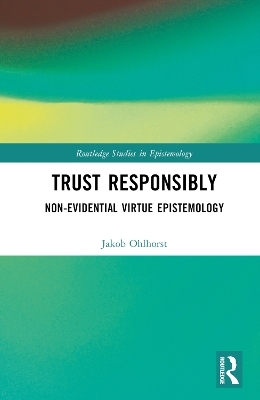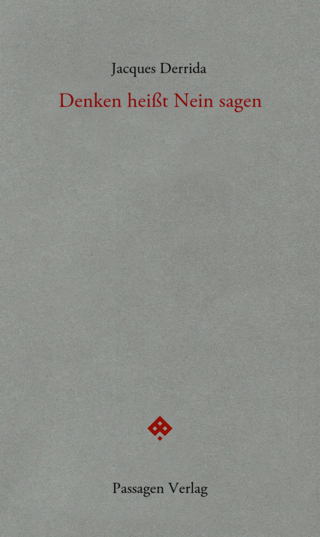
Trust Responsibly
Non-Evidential Virtue Epistemology
Seiten
2023
Routledge (Verlag)
978-1-032-46098-7 (ISBN)
Routledge (Verlag)
978-1-032-46098-7 (ISBN)
This book offers a defence of Wrightean epistemic entitlement, one of the most prominent approaches to hinge epistemology. It also systematically explores the connections between virtue epistemology and hinge epistemology.
According to hinge epistemology, any human belief set is built within and upon a framework of pre-evidential propositions – hinges – that cannot be justified. Epistemic entitlement argues that we are entitled to trust our hinges. But there remains a problem. Entitlement is inherently unconstrained and arbitrary: We can be entitled to any hinge proposition under the right circumstances. In this book, the author argues that we need a non-arbitrariness clause that protects entitlement from defeat. This clause, he argues, is to require epistemic virtue. Virtuous cognitive dispositions provide the non-arbitrariness clause that protects entitlement from defeat. The epistemic character of the agent who holds a particular set of hinges tells us something about the hinges’ epistemic status. Conversely, epistemic virtues are cognitive dispositions and capacities that rely on hinge propositions – without trusting in some hinges, we would be unable to exercise our virtues.
Trust Responsibly will appeal to scholars and advanced students working on epistemology, Wittgenstein, and virtues.
The Open Access version of this book, available at www.taylorfrancis.com, has been made available under a Creative Commons Attribution-Non Commercial-No Derivatives (CC-BY-NC-ND) 4.0 license.
According to hinge epistemology, any human belief set is built within and upon a framework of pre-evidential propositions – hinges – that cannot be justified. Epistemic entitlement argues that we are entitled to trust our hinges. But there remains a problem. Entitlement is inherently unconstrained and arbitrary: We can be entitled to any hinge proposition under the right circumstances. In this book, the author argues that we need a non-arbitrariness clause that protects entitlement from defeat. This clause, he argues, is to require epistemic virtue. Virtuous cognitive dispositions provide the non-arbitrariness clause that protects entitlement from defeat. The epistemic character of the agent who holds a particular set of hinges tells us something about the hinges’ epistemic status. Conversely, epistemic virtues are cognitive dispositions and capacities that rely on hinge propositions – without trusting in some hinges, we would be unable to exercise our virtues.
Trust Responsibly will appeal to scholars and advanced students working on epistemology, Wittgenstein, and virtues.
The Open Access version of this book, available at www.taylorfrancis.com, has been made available under a Creative Commons Attribution-Non Commercial-No Derivatives (CC-BY-NC-ND) 4.0 license.
Jakob Ohlhorst is a postdoc at the Universities of Vienna and Amsterdam. Previously, he completed his Dr. Phil. at the University of Cologne. He has published ‘Epistemic Austerity’ at Synthese and ‘Dual Processes, Dual Virtues’ at Philosophical Studies, and both papers make key arguments for this book.
Introduction 1. Hinges, certainties, trust 2. Entitlement 3. Problems for entitlement: Demarcation, arbitrariness, and relativism 4. Virtue 5. Trust virtuously Conclusion
| Erscheinungsdatum | 04.10.2023 |
|---|---|
| Reihe/Serie | Routledge Studies in Epistemology |
| Zusatzinfo | 6 Tables, black and white |
| Verlagsort | London |
| Sprache | englisch |
| Maße | 152 x 229 mm |
| Gewicht | 453 g |
| Themenwelt | Geisteswissenschaften ► Philosophie ► Erkenntnistheorie / Wissenschaftstheorie |
| Geisteswissenschaften ► Philosophie ► Ethik | |
| Geisteswissenschaften ► Philosophie ► Philosophie der Neuzeit | |
| Geisteswissenschaften ► Psychologie ► Allgemeine Psychologie | |
| ISBN-10 | 1-032-46098-9 / 1032460989 |
| ISBN-13 | 978-1-032-46098-7 / 9781032460987 |
| Zustand | Neuware |
| Informationen gemäß Produktsicherheitsverordnung (GPSR) | |
| Haben Sie eine Frage zum Produkt? |
Mehr entdecken
aus dem Bereich
aus dem Bereich
die Grundlegung der modernen Philosophie
Buch | Softcover (2023)
C.H.Beck (Verlag)
18,00 €


